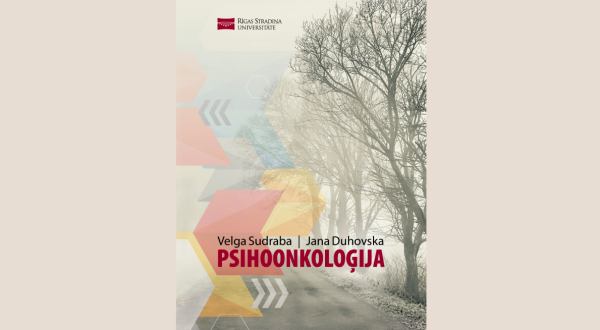RSU Scientists Discover How to Determine the Cause of Fever in Children More Accurately in International Study
An innovative test developed in the international PERFORM study will now be able to determine the cause of a child's fever more accurately, which will allow for more appropriate and safe treatments. The study was carried out over five and a half years under the European Union (EU) Horizon 2020 programme and involved ten European countries, including Latvia, The Gambia, Taiwan and Nepal. The total funding was 18m EUR.
Imperial College London was the lead partner and was represented by Professor Mike Levin, while the Latvian project was led by RSU Associate Professor Dace Zavadska. We approached Assoc. Prof. Zavadska to hear about the project’s progress and the practical benefits of the research.
 Dace Zavadska, Associate Professor at the RSU Department of Paediatrics
Dace Zavadska, Associate Professor at the RSU Department of Paediatrics
How will the results of the study help young patients?
The biggest benefit is the ability to quickly pinpoint an accurate diagnosis and be able to start appropriate treatment.
We developed a number of biomarkers during the study that will allow blood tests to determine whether the fever is being caused by a virus or bacterial infection as accurately as possible.
Depending on the type of disease and infection a person has, some genes switch on and others switch off, which can be detected using biomarkers.
Analysing this process, it is possible to determine the cause of the illness.
How extensive was the study?
6,600 children with fever were engaged from all of the countries involved in the study. Among them, 5,500 were from the admission wards, 725 from intensive care units and several other several other young patients had fevers in dangerous combination with other illnesses.
With the parents’ permission, samples of already planned blood tests were used for the test. In order not to burden both patients and medical staff, blood was not taken separately for this study.
Is the test long and complicated?
No, it is fast and quite easy to perform! It takes two minutes to prepare the test, and the process itself takes about an hour. In a short period of time it is therefore possible to determine which patients have a particularly dangerous bacterial infection, for example, in order to start appropriate treatment in a timely manner, including by using antibacterial drugs. The study showed that the range of antibiotics used so far is often too broad.
In the near future, express tests will be developed that could be performed at a patient's bedside with which doctors will quickly and easily be able to get clues about the possible causes of the fever.
Patients with infectious diseases can be split into three large groups - those with a viral illness who are not prescribed antibiotics, those who are severely ill, and a group that is sort of in the middle. It is difficult to immediately determine the cause of the fever in this group of patients, and the study is aimed more at this group.
This study was international...
Yes! This is basically a European study. The partners in the clinical section perform the same tasks, only the infections and patients differ from region to region. If we are talking, for example, about the African continent, malaria, tuberculosis and other serious diseases are widespread in many countries here. Our task was therefore to develop a relatively low-cost and easy-to-use test.
This project focuses not only on helping patients locally, but also on international cooperation. This must not be a test that is only for rich countries.
During the project, we sent blood samples to the Netherlands or England, but in the future the tests will be carried out on-site at Latvian clinics. One of our shipments contained a total of 150 litres of tests.
It should be noted that so far there have been a total of about ten scientific publications on the project, and several of them have been proposed by Latvian researchers.
 A meeting of the PERFORM project participants in Riga at Hotel Bergs in September 2018.
A meeting of the PERFORM project participants in Riga at Hotel Bergs in September 2018.
How will the study continue?
In 2019, the next Horizon 2020 project, DIAMOND, was launched. It continues to address the challenges of bringing personalised medicine into everyday life within EU healthcare systems in order to diagnose and treat common infectious and inflammatory diseases, through an existing consortium of researchers.
Next year, Latvia and six other countries will launch a pilot project to analyse blood samples on-site in clinics without the blood having to be sent anywhere.
The aim is to make the test part of routine check-ups and that it can be performed on site, for example at the Children's Hospital.
Related news
 Book on psycho-oncology: resource for studies, professional practice and patient supportPsychology, For Students, Books
Book on psycho-oncology: resource for studies, professional practice and patient supportPsychology, For Students, Books


